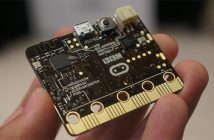
Two top K-12 education leaders in West Virginia have made a push for one-to-one computing throughout the state, which would offer every student a technological device such as a laptop or tablet.
Speaking at the third annual West Virginia Education Summit, State Schools Superintendent Michael Martirano said that initiatives to bring one-to-one computing into classrooms across the state could help to bring an end to educational inequalities among students. In other states, such programs have caused over a number of issues, including cost and concerns, that the new technology would distract students during the school day.
Martirano went on to say that it is his goal to have every West Virginia student in grades 3-12 receive a computer by 2020. He would like to see those computers be used for all classwork and available to students at school and at home, reports Navindra Persaud for Education World. He added that he would like to see younger students have computers to use at school, but not to take home.
“Equity and access allows for opportunities to push young people higher, so they can solve the problems necessary through the process of innovation,” Martirano said.
Mike Green, the president of the state Board of Education, who also spoke at the summit, said that WiFi could be added to school buses at a cost of under $200 per bus per year. Green called on local businesses for help in increasing technological access for students in the state because there would not be any state money available for the implementation of such programs yet.
According to Green, 18 of the 55 counties in the state have some form of one-to-one computing in place, although some may not have them across their entire county. Martirano said that Kanawha County, home to the largest school system in the state, handed out over 14,000 iPad tablets to every middle and high school student in the county under the Learning 20/20 initiative.
When asked what research shows that one-to-one computing will work in West Vorgomoa, Martirano said that tablets do not have the same “static” and “finite” limits on content that textbooks do, adding that any additional costs of implementing the technology would be offset by the end of using these books.
Green added that he had not seen any research to suggest any negative impacts of good technology, but that technical support would be necessary to ensure that the tablets continue to be useful tools. He said they would never replace good teachers, writes Ryan Quinn for The Charleston Gazette-Mail.
Martirano said that although he does expect to see a number of counties in the state begin to implement one-to-one computing programs, the idea is currently a goal, not a requirement.




